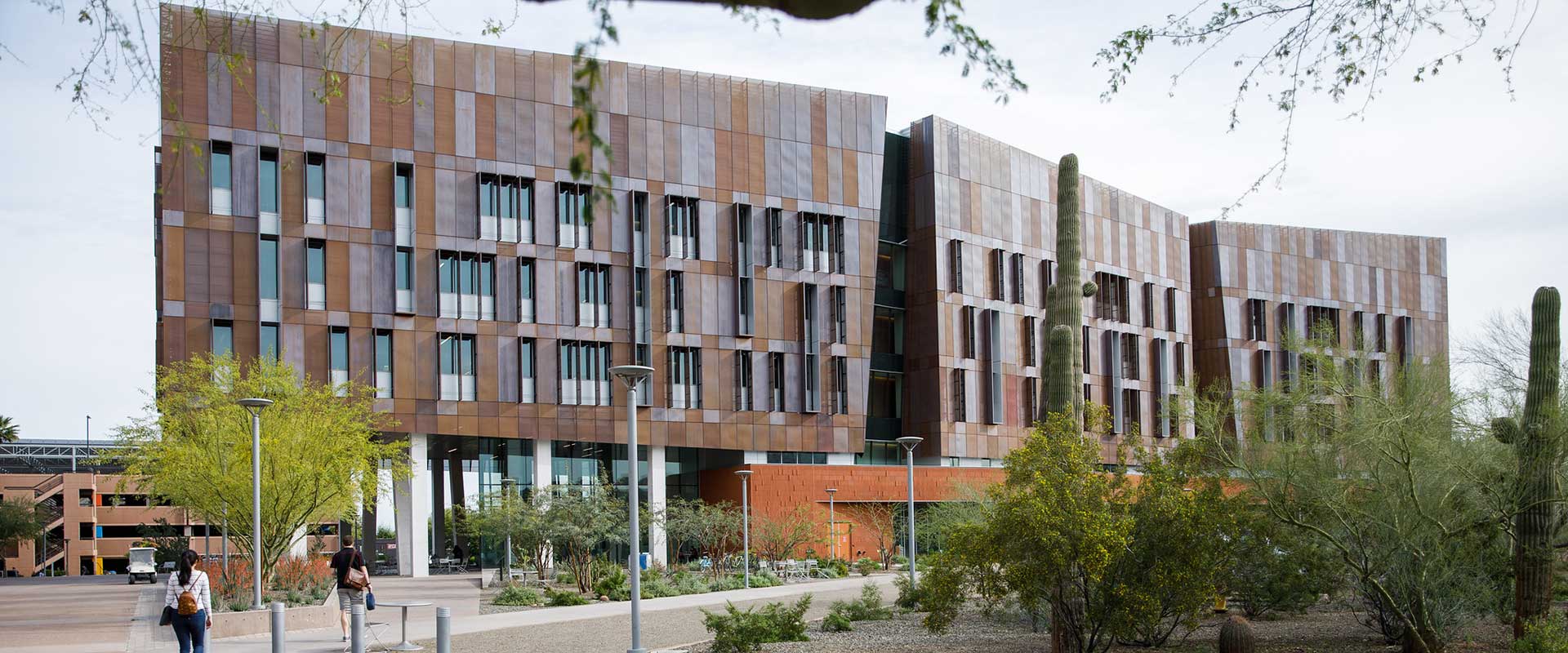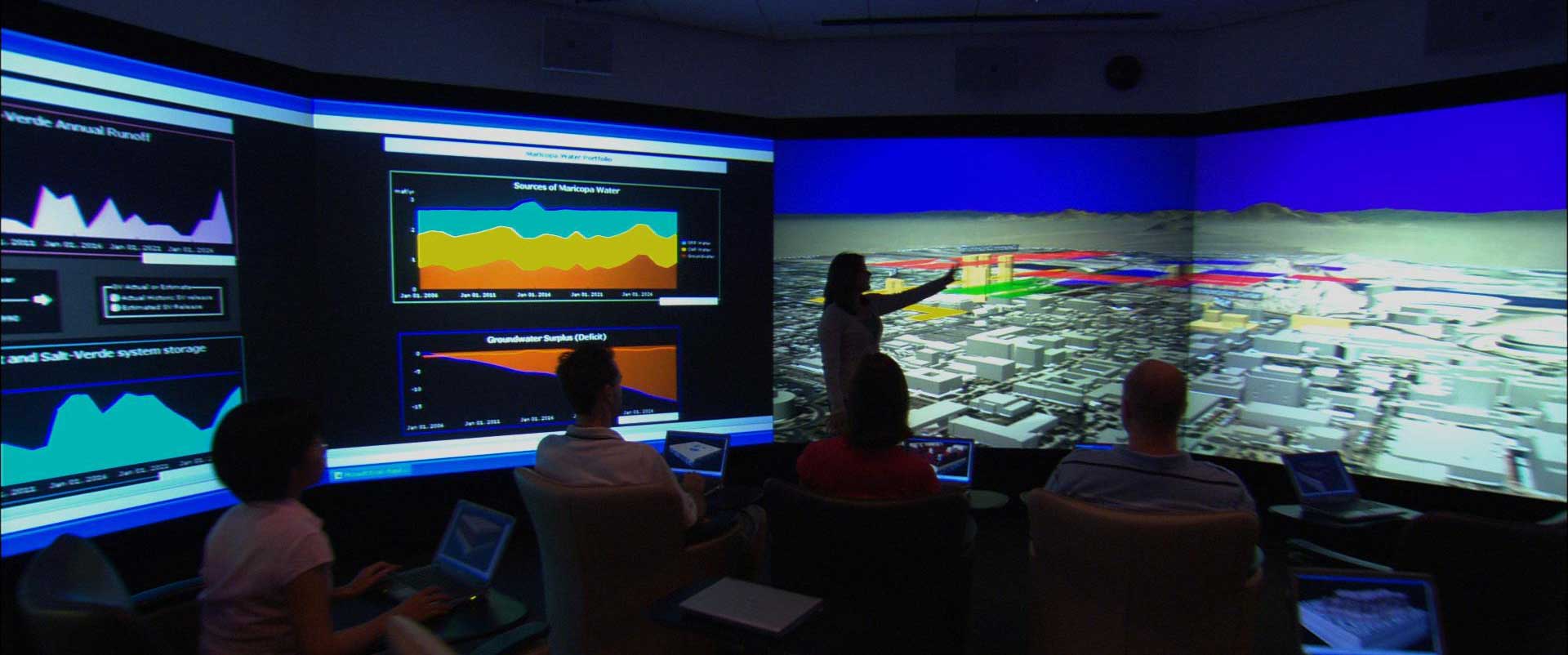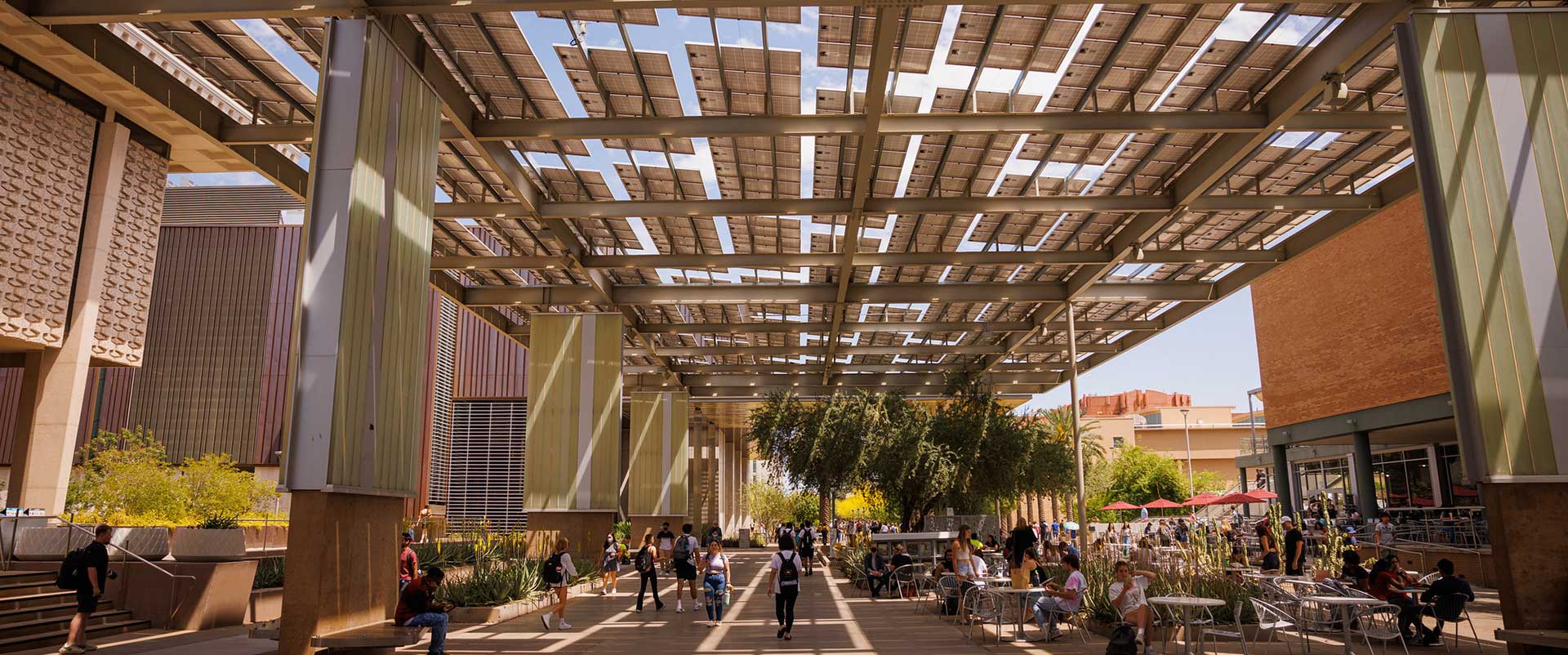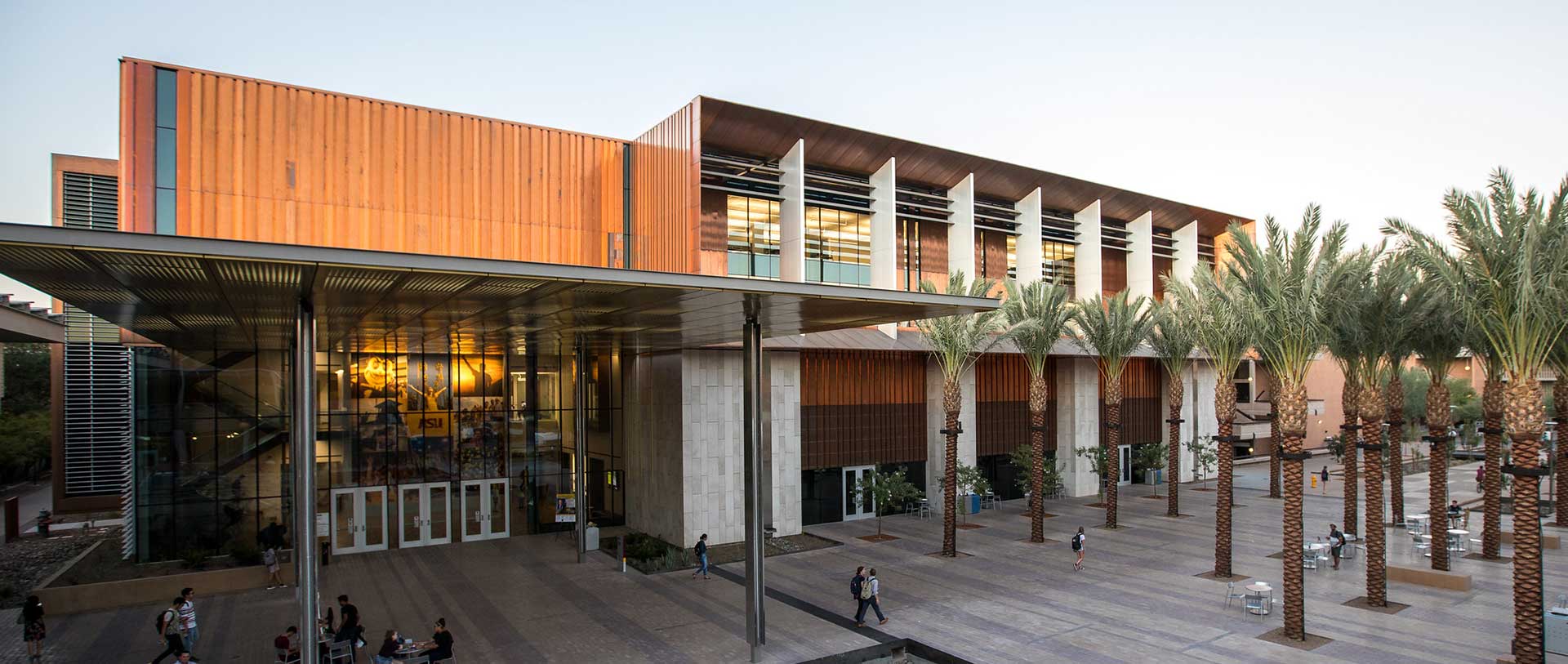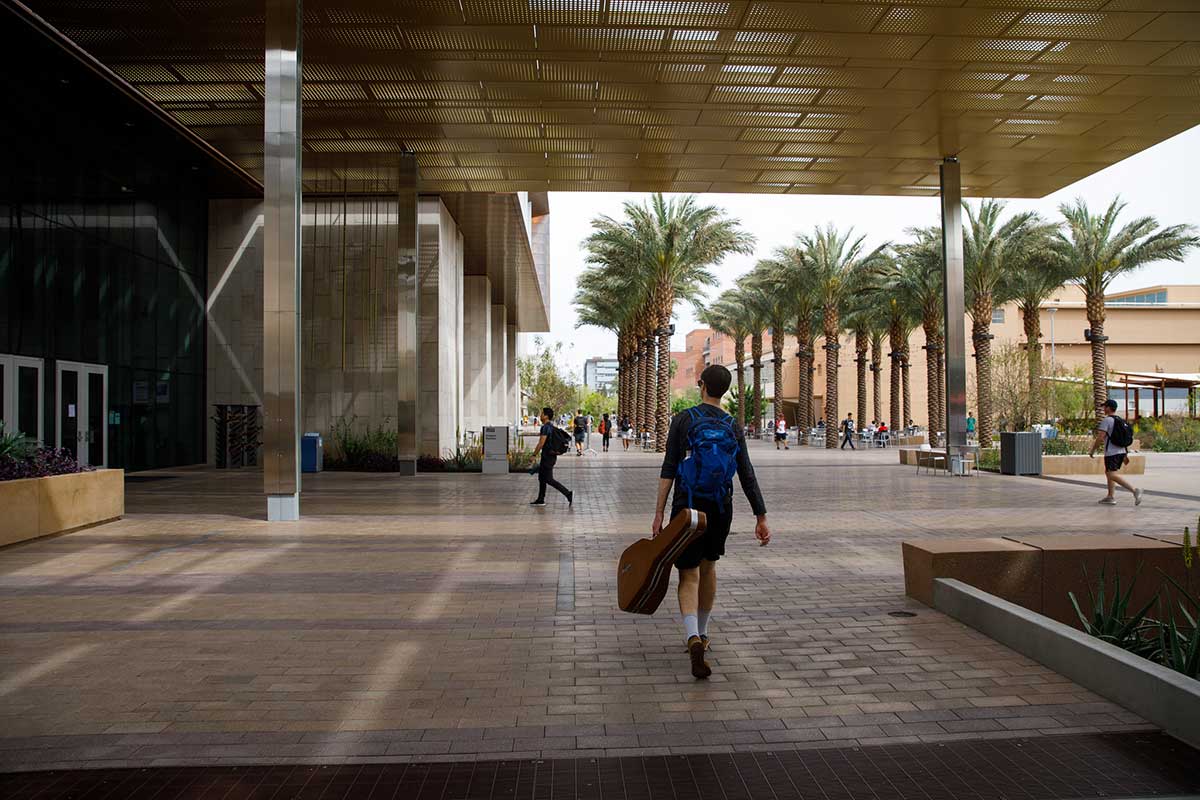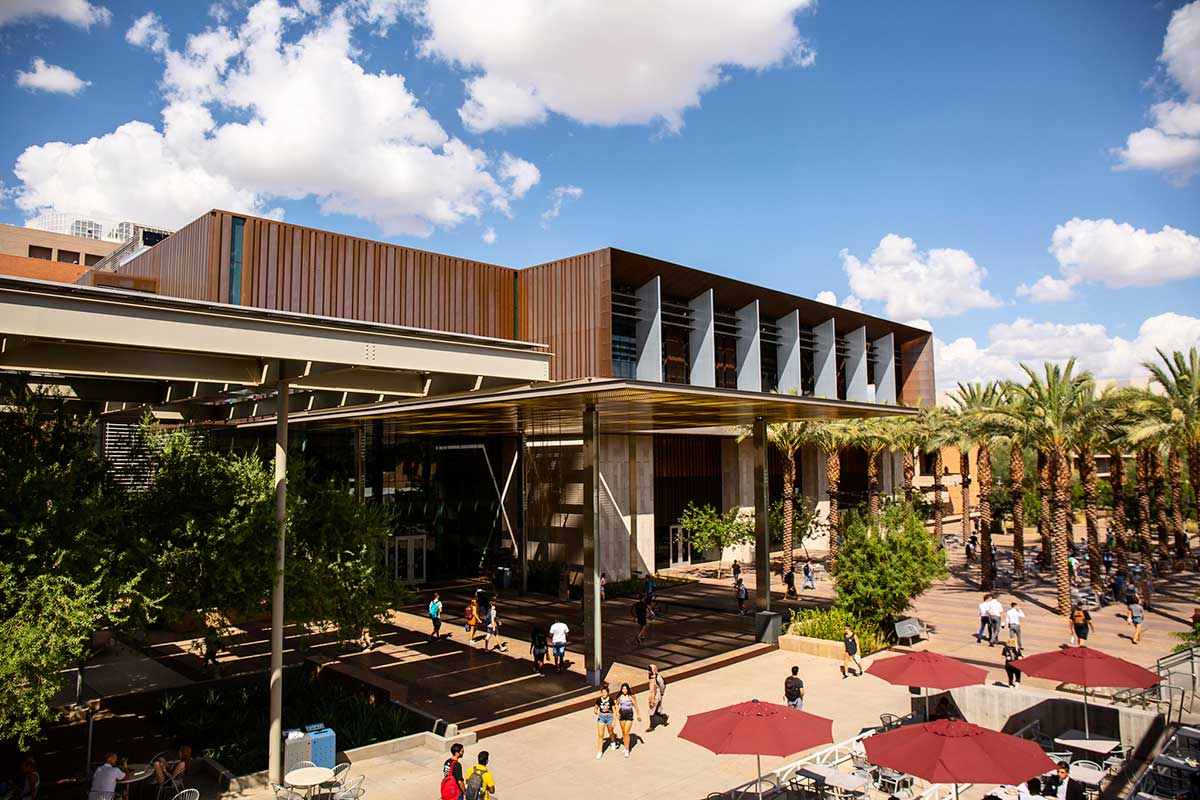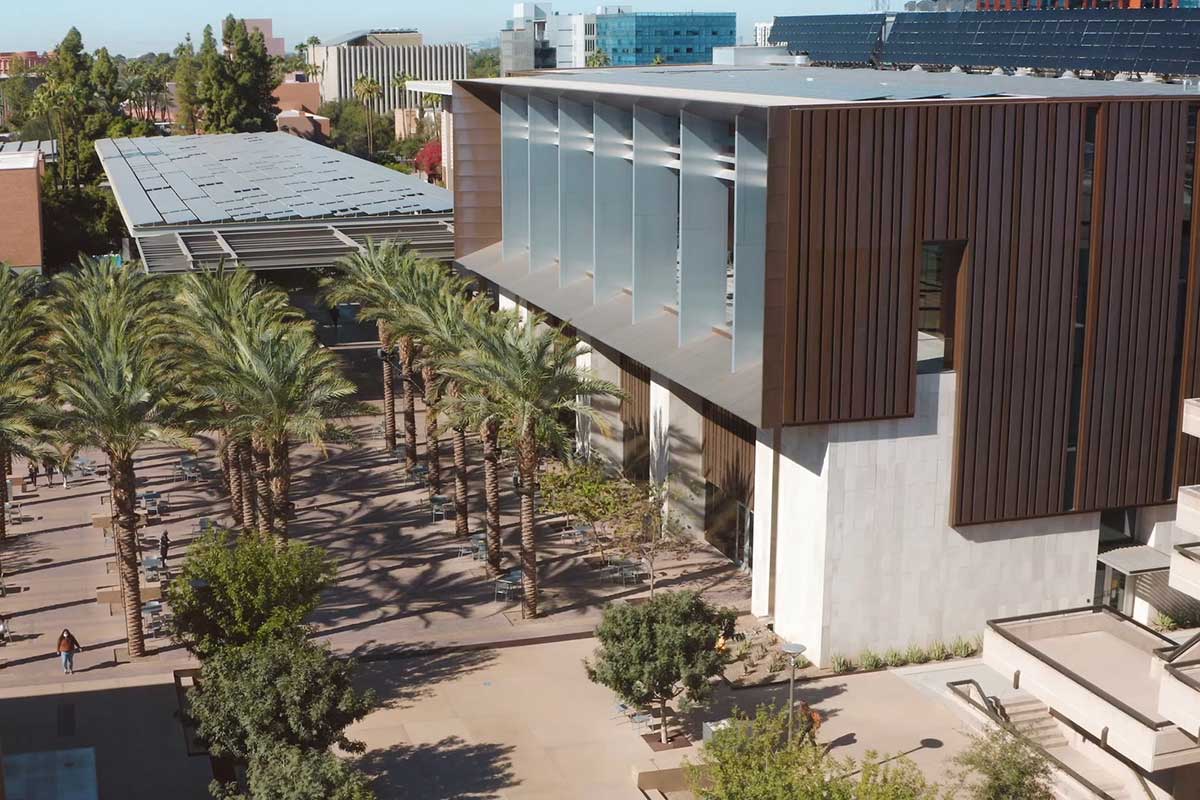Sustainability House at Barrett
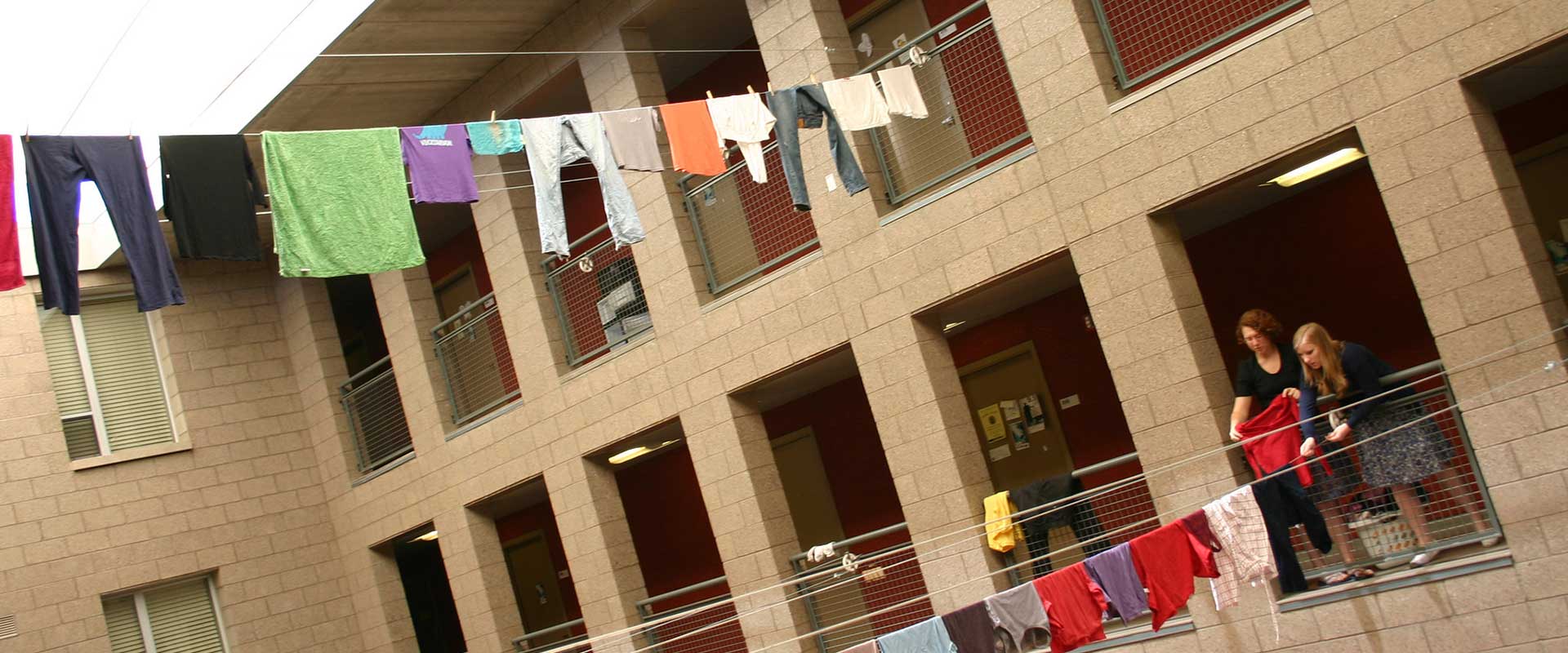
Sustainability House at Barrett
The Sustainability House at Barrett, the Honors College, is a student-initiated, student-run project that works to build a strong living and learning community of students with a common interest in understanding and acting upon a broad range of sustainability-related issues. Approximately 200 students from a variety of disciplines and undergraduate levels call the Sustainability House home — two connected residence halls that are specially designed to meet the community’s needs in the new Barrett, the Honors College Academic Complex. Solar panels, a grey water reuse system, an organic garden, an experimental green roof, and state-of-the-art energy use modeling are all extra features for the Sustainability House building. The student community will partner with administration, faculty, staff, and members of the greater community to examine their own role — both in a local and a global sense — in building a more sustainable world. Students will have the responsibility of learning to work together to establish a dynamic, shared vision of what a sustainable future means, and they will be supported by Barrett and the university to work toward achieving this goal both within and beyond the classroom.
The Barrett Academic Complex buildings are pending certification to the U.S. Green Building Council’s Leadership in Energy and Environmental Design (LEED) rating system.
